#WeAreArtTherapists

My Perspectives as a BIPOC Art Therapist
December 3, 2020 | Miki Goerdt
As a first-time facilitator of a networking event, I experienced some difficulties, which I took personally at first, telling myself that I was not experienced enough to lead it. Several days later, after processing my experience with colleagues, I realized that my difficulties were systemic rather than something attached to myself or any participants of the event. They were related to the racial dynamics of the American society and within our profession.
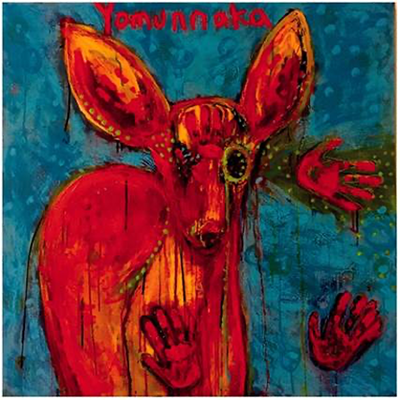
Honoring Native American Heritage Month
November 22, 2022
National Native American Heritage Month is a reminder each year to celebrate Native American people, arts, culture, and heritage. There are 3 million indigenous people in the United States, belonging to 574 federally recognized Indian Nations (variously called tribes, nations, bands, pueblos, communities and native villages) in the United States.
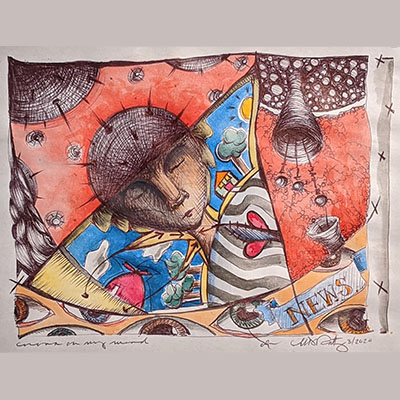
Art Therapy is Particularly Effective in Times of Crisis
September 24, 2020
In the survey, we asked respondents: “As an art therapist, how would you describe to someone unfamiliar with the profession why art therapy is uniquely suited to support mental health during this pandemic?” The survey takers explained that art therapy is particularly effective during times of crisis, especially in coping with isolation, changes in circumstance, trauma, and grief.
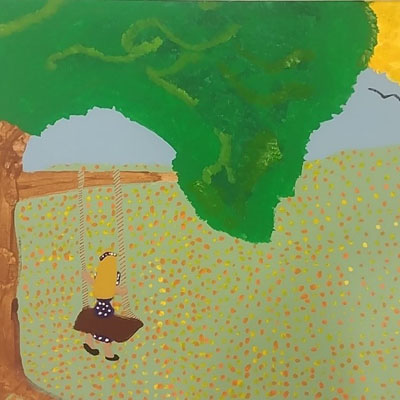
My First Art Therapy Job, at a Homeless Shelter, during a Pandemic
September 24, 2020 | By Jenelle Hallaert
Due to the inherent technological barriers that come with housing insecurity, all sessions with the guests are in-person — putting both the guests and myself at constant risk of contracting COVID-19. Even with these risks, the mental health services provided to our guests are essential for their wellbeing. Overall, the shelter has continued care as usual for this population.
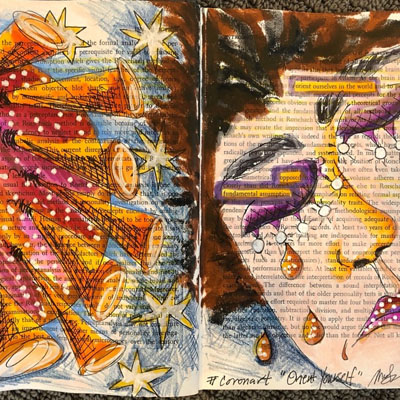
Muddling My Way Through the Pandemic: A Visual Journal
September 3, 2020 | By Mindy Jacobson-Levy
I never had an extended period of time to just make art. Who would imagine that a “wish” to have a few months to do just that would turn into an ongoing altered book about my experience during the Covid-19 pandemic?
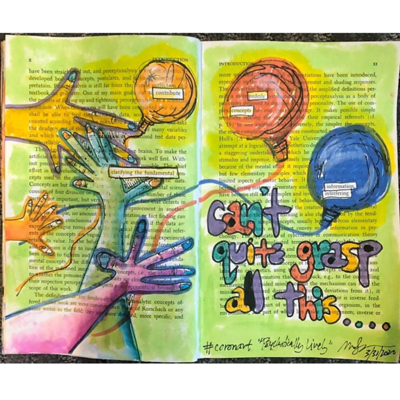
Mental Health Policy Implications during the Coronavirus Pandemic
August 24, 2020
While the results of this survey of art therapists capture a particular moment during the Coronavirus pandemic—when 95% of Americans were under some sort of stay-at-home policy—the findings remain relevant as the number of COVID-19 cases continue to rise. We hope that these results will help inform how lawmakers address the ongoing mental health ramifications of the pandemic and better support mental health professionals.

Findings from AATA’s Coronavirus Pandemic Impact Survey
August 14, 2020
To better understand how art therapists are responding to the Coronavirus pandemic and coping themselves, the American Art Therapy Association (AATA) conducted an online survey of art therapy professionals, educators, and students in May 2020. The findings offer a look into the impact of the Coronavirus pandemic on art therapists, the clients they serve, as well as access to mental health care. (Download the full report.)
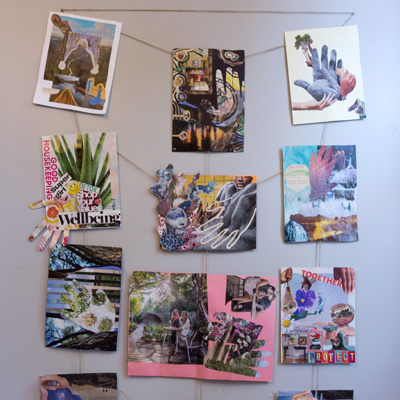
Connected While Apart: A Communal Tapestry by Domestic Violence Survivors
August 11, 2020 | By Farah S.A.
During the COVID-19 pandemic domestic violence survivors have been experiencing many hardships. Domestic violence cases have increased since the shelter-in-place order took place. Some survivors were unable to leave an unsafe living situation, while others recently left and were trying to maintain their sense of security after experiencing financial abuse prior.
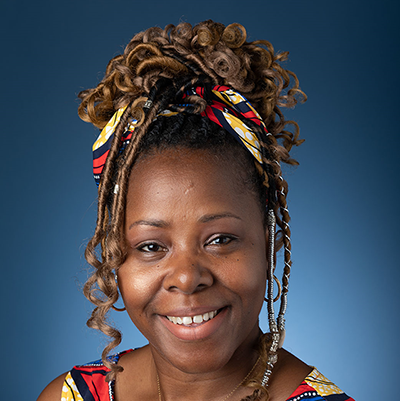
A Colorful Canvas
July 30, 2020 | Louvenia Jackson
Why do we need racial diversity, equity and inclusion? Let’s think about a muslin canvas frame. Many painting frames are created for white canvases. What if the creation existed on a colored background, with many colors depicted on it? The narrative of the art changes, allowing for different perspective to arise with complexity, intrigue, and without colonization. We must not just add color to a white base; we need to change the base. One perspective cannot be the base for all others to exist or be cultivated by.
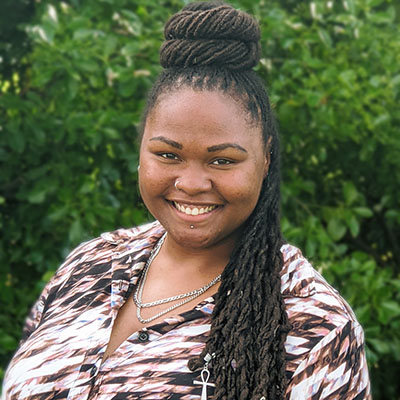
Honoring Pride and BLM: An Art Therapy Perspective
June 30, 2020 | Gabrielle Cooper
As art therapists, it is our duty to stay up to date on social issues and how they affect our clients. Black people, LGBTQIA+ people, and those with intersecting identities are especially traumatized by the videos and knowledge of the what is continuing to happen in America today. Right now is a perfect time for art therapists to show how much we care and support this movement by centering the voices of the most marginalized, evaluating our personal biases, and advocating for our clients.
